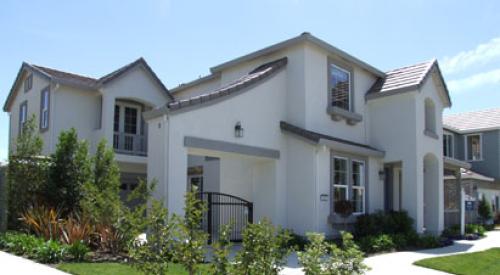A central point of reference that argues in favor of a continued strong housing market during the next decade comes from the most recent edition of an annual report issued by Harvard University’s Joint Center for Housing Studies, The State of the Nation’s Housing, 1999. Among other things, it predicts that, "over the next decade, the pace of household growth should match or slightly exceed the 1.1 million to 1.2 million annual rate averaged in the 1990s." Additionally, the study also finds that residential construction will probably proceed at a rate similar to the 1.6 million annual pace averaged in the 90s."
| These figures suggest that household growth looks very strong for the coming decade, about as strong as the growth experienced in the 90s.
|
Frederick N. Cooper, vice president of finance for Toll Brothers Inc., Huntingdon Valley, Pa., is a proponent of what these figures portend for the industry and for his company specifically, with its focus on luxury move-up buyers. "I believe that this concept is being missed by most analysts and by investors that expect a drastic downturn (in housing) due, primarily, to the notion that ‘that’s how the cycles always go.’ "
| Retiree buyers are less affected by higher rates and other economic pressures. Growth in retirees will be very strong.
|
Isaac Heimbinder, president, co-chief executive and chief operating officer of Miami-based U.S. Home Corp., also sees demographics as being a key indicator of continued growth for home builders. U.S. Home, which is expected to complete its merger with Lennar Corp. sometime in the coming weeks, is positioned well with its strength in age-restricted communities. The Harvard study estimates that during the coming decade the number of households with persons aged between 55 and 64 will increase 47.6%. Heimbinder argues that most retirees do not put off purchasing their retirement homes due to higher interest rates.
"A retiree knows that he has got 20 years left, but he doesn’t want to tell anybody that," says Heimbinder. "When he doesn’t do something for five years, he not only gives up 25 percent of his life, but he gives up the better five years of it. Retirees are less cyclical. They can wait a year, but they are not waiting five years."
Also See:
Out Of Whack On Wall Street
D. R. Horton Inc. to Invest $100M in Internet VC Fund
Lennar-U.S. Home: Priority Given to Technology Initiatives












